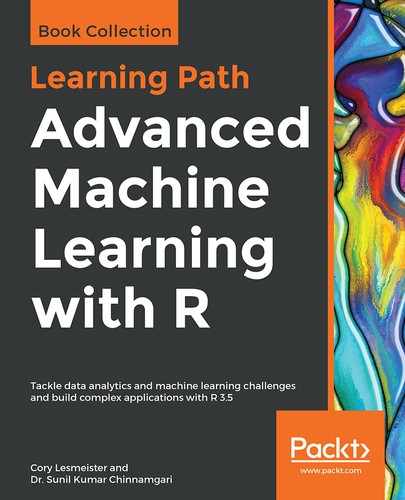In this chapter, we used the recommenderlab library extensively to build the various types of joke-recommendation engines based on the Jester jokes dataset. We also learned about the theoretical concepts behind the methods.
Recommender systems is an individual ML area on its own. This subject is so vast that it cannot be covered in just one chapter. Several types of recommendation systems exists and they may be applied to datasets in specific scenarios. Matrix factorization, singular-value decomposition approximation, most popular items, and SlopeOne are some techniques that may be employed to build recommendation systems. These techniques are outside the scope of this chapter as these are rarely used in business situations to build recommendation systems, and the aim of the chapter is provide exposure to more popular techniques. Further learning on recommendation engines could be in the direction of exploring and studying these rarely-used techniques and applying them to real-world problems.
The next chapter is focused on NLP techniques. We are going to implement a sentiment-analysis engine on Amazon product reviews using several popular techniques. We'll explore semantic and syntactic approaches to analyzing text and then apply them on the Amazon review corpus. I am all geared up to turn this page and move on to the next chapter. How about you?!
